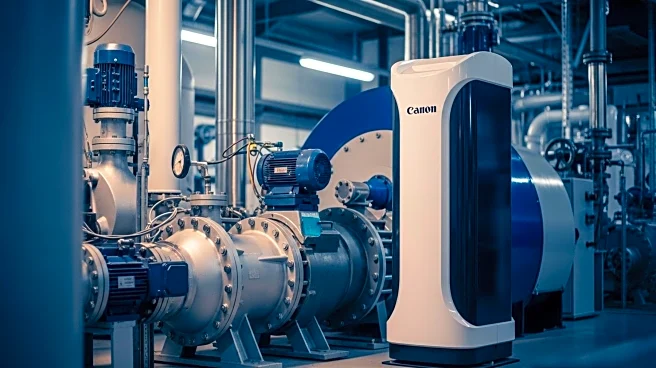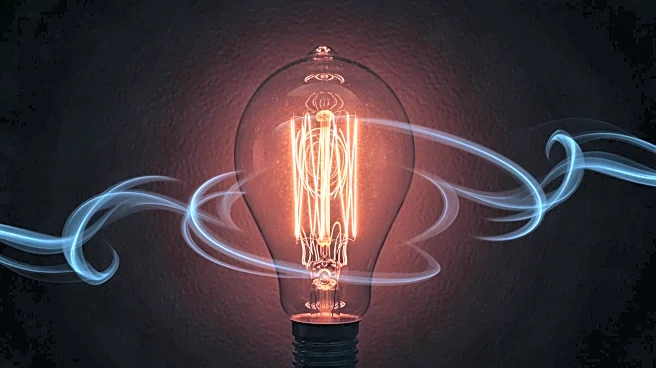What is the story about?
What's Happening?
BASF has commenced the installation of an industrial-scale heat pump at its Ludwigshafen chemicals complex in Germany, aiming to produce net-zero steam for its formic acid production line. The heat pump, designed by Austria-based GIG Karasek, utilizes mechanical vapor recompression to compress waste steam from the site's steam crackers, powered entirely by zero-carbon electricity from Vattenfall's wind farms. The system is expected to provide 50 MW thermal output, reducing emissions from formic acid production by up to 98%, saving 100,000 tCO2e annually. The project is part of BASF's broader electrification strategy to achieve climate neutrality.
Why It's Important?
The installation of the heat pump at Ludwigshafen represents a significant step towards sustainable industrial practices, highlighting the potential of waste heat as a valuable energy source. This initiative aligns with global efforts to reduce carbon emissions and transition to renewable energy sources. The project underscores the importance of policy support for industrial electrification, as highlighted by the European Commission's Chemicals Industries Action Plan. The success of such projects could influence other industries to adopt similar technologies, contributing to broader environmental goals.
What's Next?
The heat pump is scheduled to come online in mid-2027, with BASF continuing its commitment to electrification at Ludwigshafen. The German government has invested €310 million in the project, emphasizing the country's support for innovative technologies. The European Commission's plan to expand carbon levy compensation for energy-intensive industries may further facilitate the adoption of electrification technologies. The project's success could encourage other chemical manufacturers to explore similar decarbonization strategies.
Beyond the Headlines
The project highlights the ethical and environmental dimensions of industrial waste management, transforming waste heat into a resource. It also reflects a shift in industrial practices towards sustainability, potentially setting new standards for energy efficiency in chemical production. The collaboration between BASF and Vattenfall exemplifies the role of partnerships in achieving environmental goals.
















